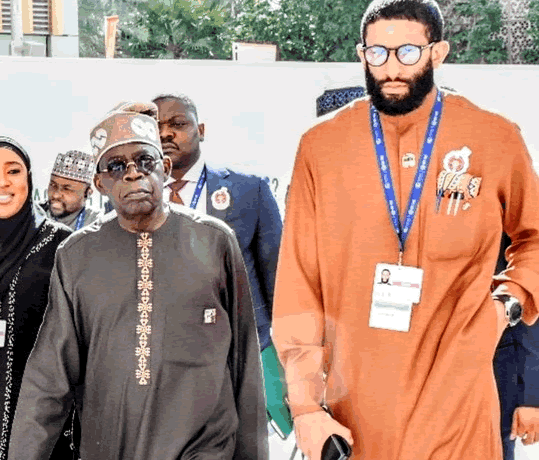Strategic Importance: President Bola Tinubu’s establishment of the Presidential Committee on Climate Action and Green Economic Solutions signifies a strategic move towards addressing climate change and promoting sustainable economic growth. This initiative is pivotal as it aligns Nigeria with global efforts to mitigate climate impacts and transition towards a green economy. By prioritizing climate action at the highest level of governance, Tinubu demonstrates a commitment to environmental stewardship and economic resilience.
Leadership and Coordination: The composition of the committee, chaired by the President himself and including key government and industry leaders, underscores the importance of high-level coordination in tackling climate issues. This leadership structure is designed to ensure that climate policies are integrated across various sectors and that there is a unified approach to implementing the President’s Renewed Hope Agenda on climate action. The inclusion of representatives from diverse ministries and agencies highlights the interdisciplinary nature of the challenge and the need for a collaborative effort.
Ajuri Ngelale’s Dual Role: Appointing Ajuri Ngelale as both the Special Presidential Envoy on Climate Action and the committee’s Secretary is a strategic choice. Ngelale’s existing role as Special Adviser on Media and Publicity positions him well to effectively communicate and advocate for climate initiatives both domestically and internationally. His dual responsibilities will help streamline communication channels and ensure that climate action remains a prominent agenda in both public discourse and policy implementation.
Economic and Environmental Integration: The committee’s mandate to remove coordination barriers and foster a whole-of-government approach to climate action is crucial for efficient governance. By integrating environmental considerations into economic planning, the committee aims to create sustainable development pathways. This approach not only addresses immediate environmental concerns but also sets the foundation for long-term economic stability and growth. The focus on green economic solutions is particularly relevant as Nigeria seeks to diversify its economy and reduce dependence on fossil fuels.
Evergreen City Project: The appointment of The Infrastructure Corporation of Nigeria (InfraCorp) as the Lead Arranger and Developer of Evergreen City is a significant step towards creating a green industrial zone. This project represents a major investment in sustainable infrastructure and economic development. By involving private partners and raising private funding, the initiative leverages public-private partnerships to drive green innovation and development. InfraCorp’s role in coordinating with development institutions and providing technical assistance is critical for the project’s success.
Implications for Stakeholders: For businesses and investors, the committee’s establishment signals potential opportunities in green technologies and sustainable projects. The focus on environmental impact assessments, feasibility studies, and financial modelling indicates a rigorous and structured approach to project development, which can attract both domestic and international investors. For environmental advocates and NGOs, this initiative offers a platform to engage with the government on climate policies and collaborate on implementing sustainable solutions.
Challenges and Considerations: While the initiative is promising, several challenges need to be addressed. Effective coordination across multiple government agencies and private entities requires robust governance frameworks and clear communication channels. Ensuring that the policies and programs are inclusive and benefit all segments of society, particularly vulnerable communities, is essential. Additionally, the committee must navigate the complex landscape of international climate finance and technology transfer to maximize the benefits of global partnerships.
Conclusion
President Tinubu’s formation of the Presidential Committee on Climate Action and Green Economic Solutions marks a proactive step towards integrating climate action into Nigeria’s national agenda. By aligning environmental sustainability with economic development, this initiative sets the stage for a resilient and prosperous future. The success of this endeavor will depend on effective coordination, strategic leadership, and inclusive implementation, positioning Nigeria as a leader in the global fight against climate change.


